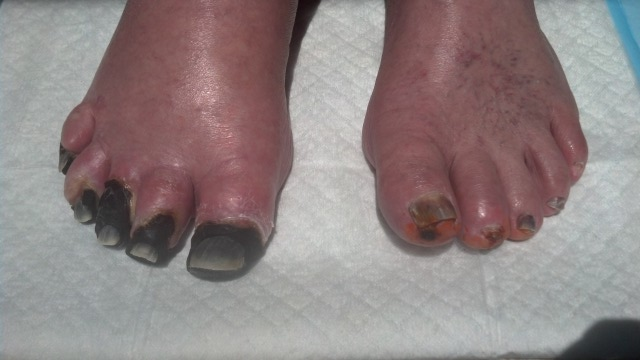Lose Weight > Question and Answer > Nutrition Dieting > After major weight loss, more likely to gain future weight?
After major weight loss, more likely to gain future weight?
Question
Dear Ms. Beebe,
I am a 6ft, 20 year old college student. A year ago, when I was 226 pounds, I
began stimulant (amphetamine) treatment for ADHD. As a result, I lost about
40 pounds in 8 months. Then I developed tolerance to the anoretic effects of
my meds, and realized that I had to make a lifestyle change to keep in good
shape. I began strength training and daily cardio exercise, and now weigh
just 159lbs, with 7-8% body fat percentage.
However, I cannot help but notice that my body seems to be very sensitive to
weight (fat) gain. If I eat a few fatty/high carb meals (no more than 3,000
calories combined), body fat accumulates very fast. I've read that since the
number of fat cells is constant for life, people like me can regain weight much
faster than someone who has never been overweight in the first place.
Is this fat-cell principle true? If so, how significant a disadvantage does it
have, compared with people who would have to grow new fat cells to gain
weight? And will my body ever "accept" my new weight as normal, so I will
not have to battle so hard to stay in good shape?
I know this is a lengthy question, and I understand if you can't answer it.
Thank you very much for considering it though, I really appreciate it.
-Brian
Dear Brian,
It's great that you have been making a lifestyle change to keep your healthy weight!
Weight gain is not an exact science--while it may be true that with a larger number of fat cells you are more likely to gain weight, the lifestyle also plays a great role in weight maintenance or gain.
The perception you have of what an appropriate number of calories is to eat each day and your perception of your body size and shape also comes into play.
People who are heavier in adolescence tend to view themselves that way throughout life, even when weight is lost. The ideal weight for a man who is six feet tall ranges from 155 pounds to 189 pounds. Clearly you are at the lower end of that range now.
It's also doubtful that most people your size would burn 3000 calories. You may burn close to it (2800, perhaps) but eating 3000 calories will lead to weight gain.
I'm a bit concerned you may be predisposed to some type of eating disorder: when you find you are constantly preoccupied with your weight, exercise, calories, body fat, etc, it might be a good idea to speak with a counselor just to get things all in perspective. If you are just trying to eat healthy and maintain a healthy weight, that's fine... but if you find that your exercise and diet begin to run your life, it's a good idea to get some help to keep things in perspective.
Good luck!
- Prev:smoothies
- Next:Increasing amount of weight lifted
Related Articles
-
toning
QuestionHello Glyn. I am a 21 year old healthy male. I work out e
-
Losing some weight
QuestionGood evening,I am a 16 year old girl, my height is 157cm
-
vegetable juice bad?
QuestionIs vegetable juice bad for your health? Mom heard somewhe
-
how can i loose weight
Questionhi how can i loose weight because i weigh 183 pounds Ans
-
intake of high protine food
QuestionI M 24 YRS OLD MALE (INDIA, I M HAVING A WORK OUT PROGRAM
-
medications and supplements
QuestionMy husband has high blood pressure and takes 4 medication



